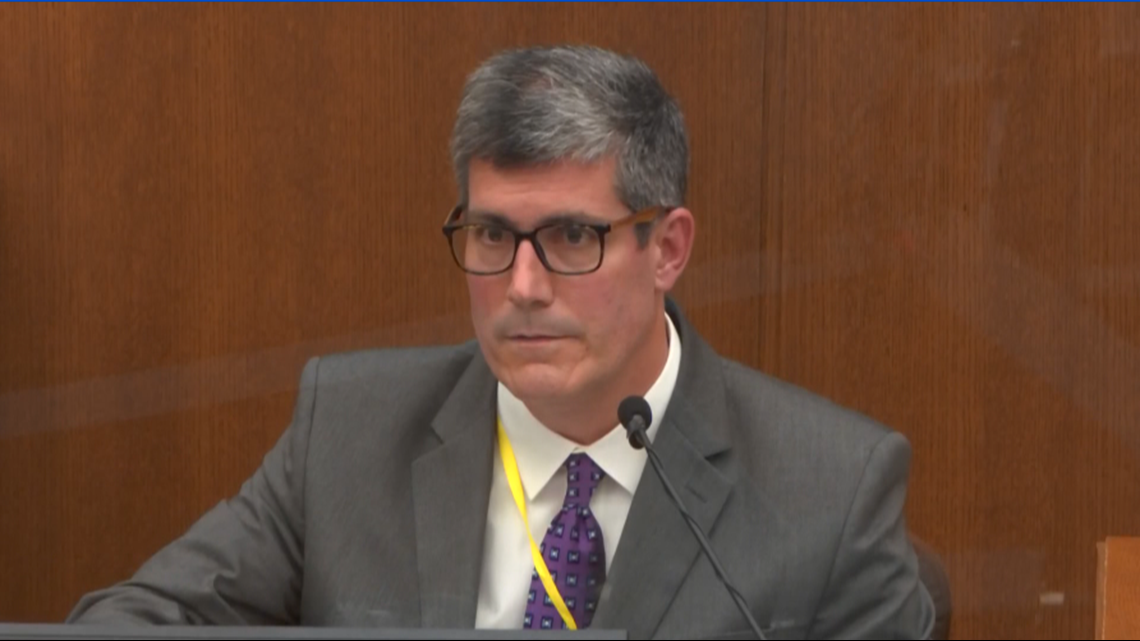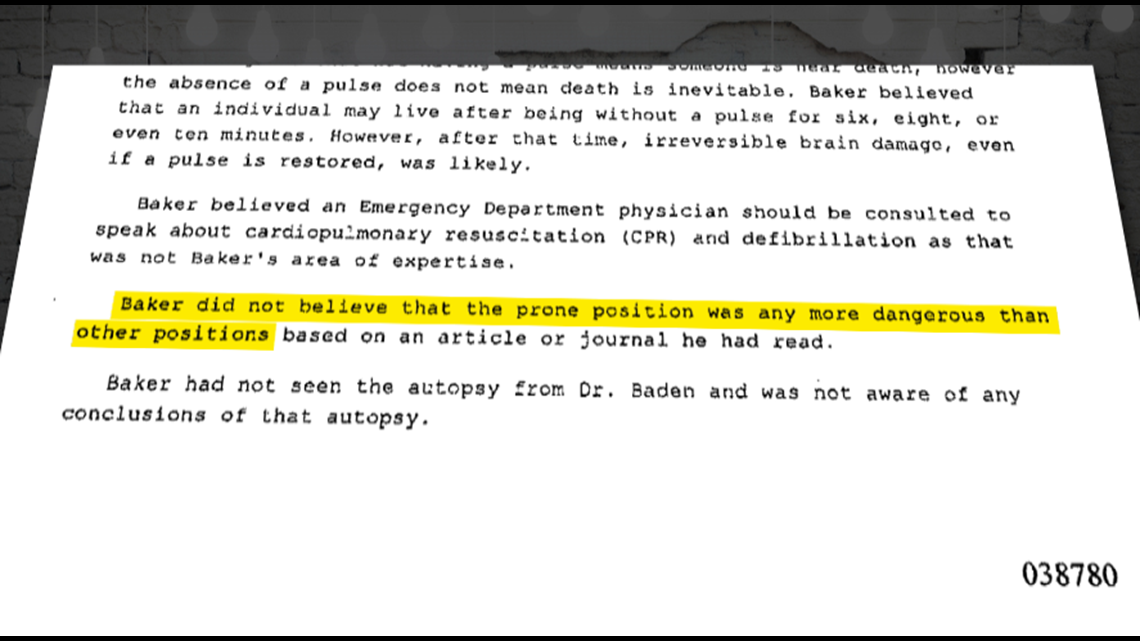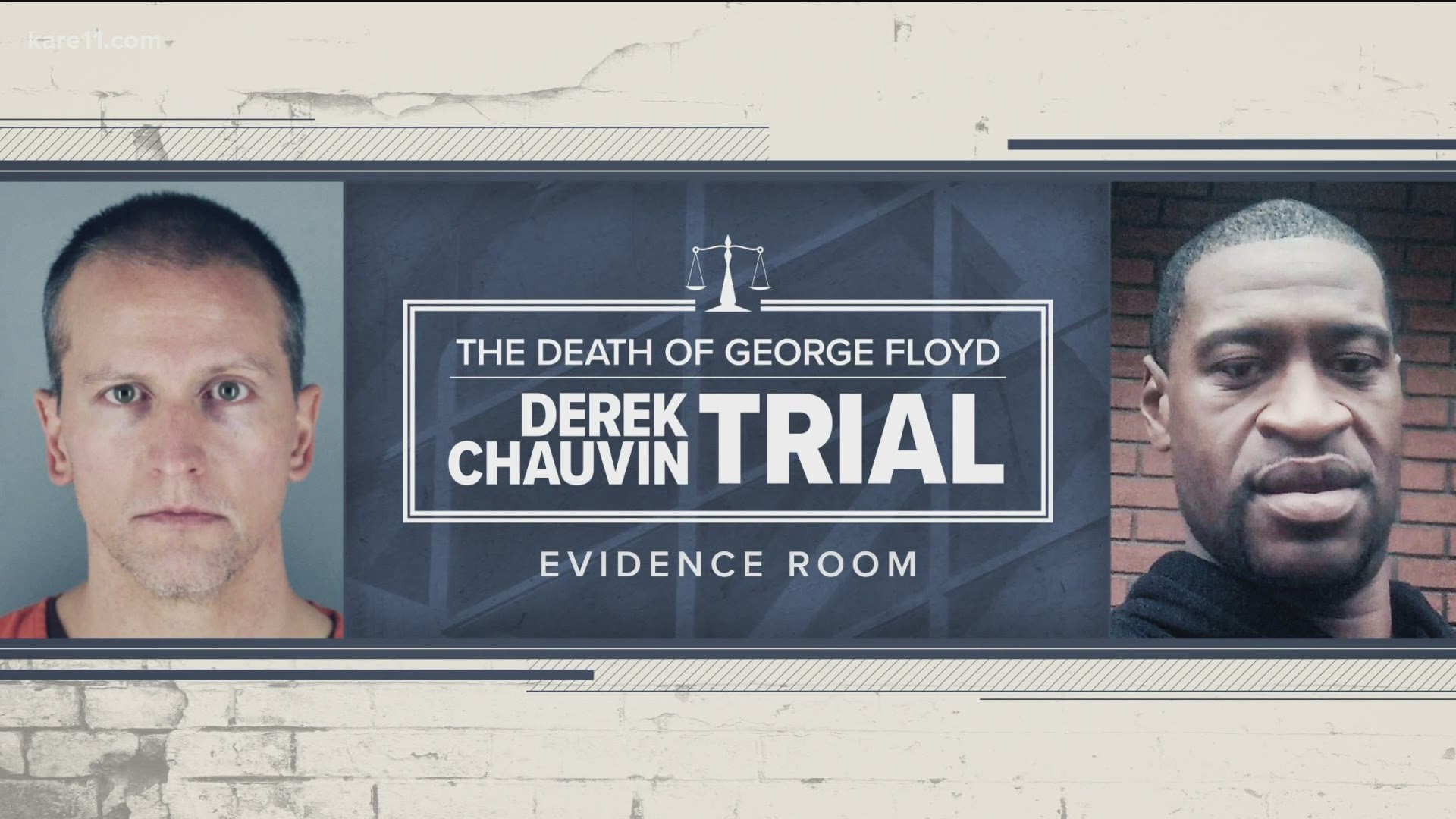MINNEAPOLIS — As the defense in the Derek Chauvin murder trial prepares for closing arguments Monday, attorney Eric Nelson likely has been thinking about how to call attention to the early opinions of the Hennepin County Medical Examiner about George Floyd’s death.
When the defense called its medical witnesses Wednesday, Dr. David Fowler testified that drugs and Floyd’s underlying medical conditions contributed to his death – not Chauvin’s knee on his neck.
He pointed to some of the same factors Hennepin County Medical Examiner Dr. Andrew Baker noted early in his analysis of the case.
Under cross-examination, Baker was asked repeatedly about his early conversations with prosecutors.
“Do you recall having a conversation with the Hennepin County prosecutors about the significance of the toxicology findings?” defense attorney Eric Nelson asked.
“I recall having the conversation. I don’t recall the specifics of it,” Dr. Baker replied.
Although Baker said he did not remember the details, evidence already introduced in pretrial motions document a series of statements that seem to conflict with the prosecution's theory that a lack of oxygen – rather than a drug overdose – caused Floyd’s death.


On May 26, the day after Floyd’s death, a memo written by a Hennepin County prosecutor summarizes what Dr. Baker told them about his preliminary findings. It says he found “no physical evidence suggesting that Floyd died of asphyxiation.”
The next day another memo shows Baker updated prosecutors again. Although he said his findings were still preliminary, the memo says he outlined three factors he believed contributed to Floyd’s death. He listed “coronary artery disease,” “any stimulants potentially in Mr. Floyd’s system …” and “the exertion caused by Mr. Floyd’s encounter with police officers.” There was no direct mention of trouble breathing.
A third memo says Dr. Baker told prosecutors on May 31 that he had received the results of toxicology tests. It says the tests found a “pretty high” level of fentanyl in Floyd’s system. “That is a fatal level of fentanyl under normal circumstances,” Baker said according to the prosecutor’s memo.
On the surface, that would seem to support the defense's theory that Floyd died of a drug overdose and his underlying medical conditions.


In July, Baker was interviewed by FBI agents and Justice Department lawyers who were also reviewing Floyd’s death. An FBI memo summarizing the interview says Baker told them he “did not believe that the prone position was any more dangerous than other positions …”
That also conflicts with the testimony of prosecution experts – and matches what a defense expert told the jury Wednesday.
Dr. David Fowler testified about studies which say there is little danger of prone restraint. “There really is no significant impairment of individuals’ respiratory functions,” he said.
The author of some of the research discussed in the trial Wednesday – Dr. Mark Kroll of the University of Minnesota – previously told KARE 11 his work on prone restraint was “minimal.”

